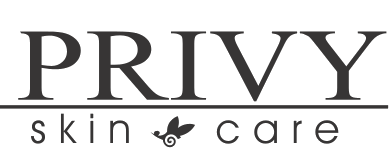Likely you’ve heard warnings to be mindful of what chemicals are in your personal care products, and parabens make it onto every warning list. Here’s what we know:
Parabens are a class of preservatives widely used in cosmetic products. Parabens are effective preservatives in many types of formulas, which allows a longer shelf life- both in the store and in your bathroom cabinet. They are used primarily for their bactericidal and fungicidal properties. They can be found in nearly every cosmetic and personal care product, from shampoos, moisturizers, and shaving gels, to personal lubricants, spray tanning solution, makeup, and toothpaste.
The most common parabens used in cosmetic products are methylparaben, propylparaben, and butylparaben. Typically, more than one paraben is used in a product, and they are often used in combination with other types of preservatives to provide preservation against a broad range of microorganisms. The use of mixtures of parabens allows the use of lower levels while increasing preservative activity.
The FDA is not authorized to regulate cosmetic ingredients (with the exception of color additives), however, according to the FDA’s website, “it is against the law to market a cosmetic in interstate commerce if it is adulterated. Under the FD&C Act, a cosmetic is adulterated if, among other reasons, it bears or contains any poisonous or deleterious substance which may render it injurious under the labeled conditions of use, or under customary or usual conditions of use.”
So… what’s the controversy?
In the 1990s, parabens were deemed xenoestrogens―agents that mimic estrogen in the body. “Estrogen disruption” has been linked to breast cancer and reproductive issues. In 2004, British cancer researcher Philippa Darbre published a study detecting parabens in breast tumors. However, the study did not show that parabens caused the cancer, and the study did not look at possible paraben levels in normal tissue. But as a result, experts in many countries recommend limits on paraben levels in cosmetic products. What’s more, some worry that if parabens can be stored in the body, over time they could have a cumulative effect and pose a health risk.
So what should you do? We certainly feel there is enough information to be mindful of parabens in the products you use. Afraid to give up all your favorite products at once? Start by switching to a paraben free body lotion, which is a product that is often used frequently, and over a large area of the body. If you’re ready to go paraben free, remember that truly preservative free products need to be used within their “use by” date so as not to fall victim to bacteria or mold- neither of which you want to be applying to your skin either!
As always, we love talking to you about your skin care and product questions and concerns. For questions about parabens, or any other aspect of your skin care routine, book your next appointment at www.privyskincare.com, or call us at 702.496.2066.




